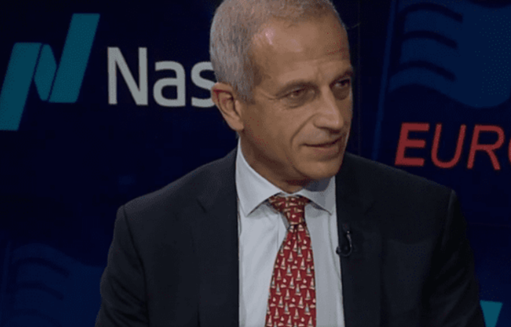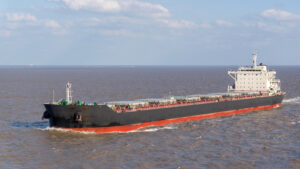
Greek drybulk owner and operator EuroDry reports that the dry bulk sector is on track to rise further this year if vessel supply tightens even more, possibly resulting in spikes, as freight markets demonstrate a remarkable sensitivity to changes in the vessel supply/ demand balance.
Last year the dry bulk shipping experienced robust gains throughout the fourth quarter, with the Panamax freight index reaching $17,158 per day in December 2023, which is the highest level since mid-2022.
As the Greek company led by Aristides Pittas says, however, 2023 has been a relatively moderate year for bulker earnings, as diminished fleet inefficiencies and the cumulative growth of the fleet in recent years have offset a strong trade rebound.
Aristides Pittas, chairman and chief executive of EuroDry, noted that during the fourth quarter of 2023, average charter earnings for the company’s vessels continued increasing peaking up in the middle of December but then giving up most of their gains by early February.
Time charter rates, after softening a bit in the beginning of the quarter, held their levels and have continued increasing modestly since.
These rate developments partly reflect seasonal patterns and, partly, reduced throughput of the Panama Canal and Suez Canal, due to climate related reasons in the former case and hostilities in the area in the latter, that have resulted in longer voyages for some shipments.
On the supply side, ordering of new ships has been very limited, as EuroDry reports, due to lack of available slots in shipyards and the lack of clarity for the “fuel of the future” amidst a significant methanol-fueled orders.
Furthermore, introduction of emissions regulation related measures (EEXI and CII) could further curtail supply via increased scrapping or slower operational speed for a portion of the fleet, as the shipowner predicts.
“While we believe that the near-term outlook will depend on the development of the situation of the two canals, Panama Canal and Suez Canal, and current geopolitical conflicts and wars, a key area to watch is China and its potential to drive demand growth, given the challenges in the property sector and sensitivity to government coal policy,” Pittas explained.



